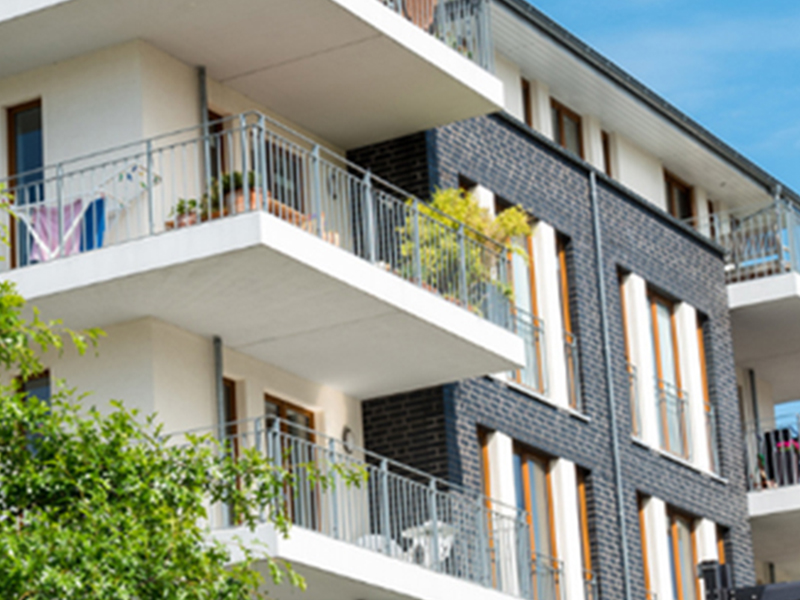Choosing between single-family homes and multi-unit properties for investment in the New Jersey real estate market requires a good understanding of the local dynamics, as well as your own investment preferences. Both options offer unique benefits and challenges, influenced by New Jersey’s diverse market from the urban landscapes of Newark and Jersey City to the quieter, suburban areas like Montclair or the coastal sections such as Cape May. Here’s a deep dive into the pros and cons of each to guide your investment choices.
Single-Family Homes: A Popular Choice in New Jersey
In the Garden State, single-family homes are a cornerstone of the real estate market. Here’s what makes them appealing – and a bit challenging:
Pros:
- Easier Financing: The New Jersey housing market benefits from conventional loan terms that are competitive, with many lenders offering attractive rates for single-family homes.
- Management Simplicity: Dealing with just one tenant makes property management a breeze, a factor not to be underestimated in sprawling suburban communities.
- Longer Tenancy: New Jersey families often seek stability, leading to longer rental periods in single-family homes, which is great for reducing turnover.
- Appreciation Potential: With the state’s real estate market experiencing steady growth, particularly in up-and-coming areas, single-family homes have a solid appreciation potential.
- Easier Resale: There’s always demand for single-family homes, making them relatively easier to sell.
Cons:
- Vacancy Risk: An empty home means no rental income, a risk that’s fully felt with single-family properties.
- Limited Income Potential: Being limited to one rental unit can cap your income potential.
- Higher Per-Unit Costs: On a per-unit basis, acquiring single-family homes can be pricier than investing in a multi-unit complex.
Multi-Unit Properties: Diverse Opportunities in New Jersey
For those looking at a more scalable investment, New Jersey’s multi-unit properties, ranging from duplexes in suburban areas to small apartment buildings in urban centers, offer varied opportunities:
Pros:
- Higher Income Potential: More units mean more rental income, a significant advantage in densely populated areas.
- Reduced Vacancy Risk: Multiple units mitigate the risk of losing all income if one becomes vacant.
- Economies of Scale: Managing and maintaining one property with several units can be more cost-effective.
- Forced Appreciation: Improvements and management efficiencies can directly increase the property’s value.
Cons:
- Complex Management: Multiple tenants and units increase management complexity, especially in high-maintenance urban settings.
- Higher Initial Investment: These properties generally come with a heftier price tag up front.
- Financing Hurdles: Financing can be more challenging, especially for properties with five or more units, which may require commercial loans.
- Varying Appreciation: Depending on location, multi-unit properties may not appreciate as rapidly as single-family homes.
Making Your Decision in the New Jersey Market
Considering the following factors can help tailor your decision to your investment needs:
- Investment Goals: Are you in for quick cash flow or aiming for long-term property value appreciation?
- Capital: Multi-unit investments in New Jersey, especially in top markets like Hoboken or Princeton, require more upfront capital.
- Time and Skills: Do you have the skills—or the time to acquire them—to manage the complexities of a multi-unit property?
- Local Market Conditions: Each New Jersey town has its market dynamics. Urban areas may offer high rental demand but also come with higher purchase prices and competition.
- Risk Tolerance: Weigh the steady income potential against the added responsibilities of a multi-unit property.
Creative Strategies for New Jersey Investors
Innovative investment approaches can make both options more lucrative. Consider the following:
- House Hacking: Live in one unit of a multi-unit property and rent out the rest. Ideal in New Jersey’s suburban or urban areas, where rent can cover most, if not all, of your mortgage.
- Vacation Rentals: With tourist attractions from the Jersey Shore to the historical sites, single-family homes can serve as profitable short-term rentals.
- Value-Add Opportunities: Identifying undermanaged multi-unit properties for renovation in New Jersey can yield high returns.
- Mixed-Use Properties: Combining residential and commercial leases provides diversified income, particularly effective in New Jersey’s commuter towns.
- Conversion Potential: Exploring properties with the potential for conversion, respecting local zoning laws, can uncover hidden gems, especially in older communities.
Choosing between single-family and multi-unit properties in New Jersey isn’t just a matter of preference. It requires an understanding of the local market, your financial capabilities, and how much time you can dedicate to property management. Whether you’re drawn to the hands-on appeal of a single-family home or the income potential of multi-unit dwellings, comprehensive research, and strategic planning will pave your path to real estate investment success in the Garden State. Dive in, the market awaits.

